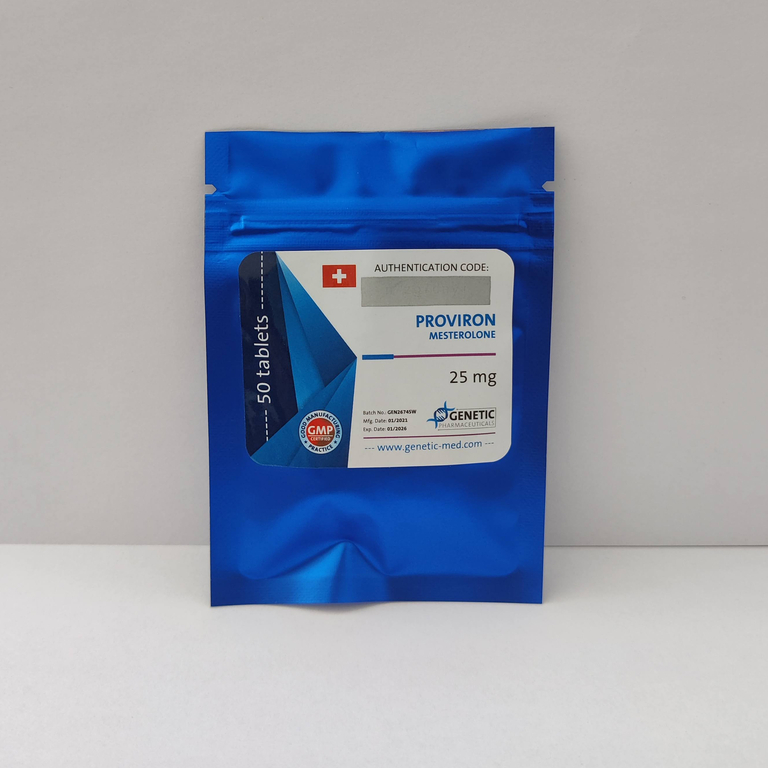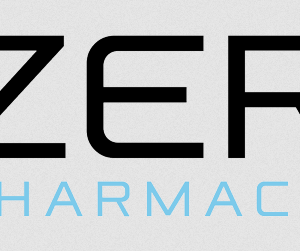PROVIRON GENETIC
$50.00 Original price was: $50.00.$45.00Current price is: $45.00.
Package: 50 tabs (25mg/tab)
Active Substance: Mesterolone
Proviron, also known as Mesterolone, is an oral androgenic anabolic steroid (AAS) used in the treatment of hypogonadism, a condition in which the body does not produce enough testosterone. It is also used to treat male infertility and to enhance athletic performance. This comprehensive guide provides detailed information about Proviron, including its indications, contraindications, administration, medical action, precautions, side effects, overdosage, and conclusion.
Indication
Proviron is primarily indicated for the treatment of hypogonadism in males, a condition characterized by low levels of testosterone. It is also used to treat male infertility caused by low sperm count or poor sperm motility. Proviron works by increasing the production of testosterone in the body, which can improve symptoms such as low libido, fatigue, and mood changes.
Contra-indications
Proviron should not be used in patients with prostate cancer, breast cancer in men, or hypercalcemia (high blood calcium levels). It is also contraindicated in pregnant or breastfeeding women, as it may harm the fetus or infant. Proviron should not be used by children under 18 years of age, as it may interfere with normal growth and development.
Administration
Proviron is typically administered orally in tablet form. The recommended dosage for the treatment of hypogonadism is 25-100 mg per day, divided into two or three doses. The dosage may vary depending on the patient’s response to treatment and the severity of the condition. Proviron should be taken with food to minimize gastrointestinal irritation.
Medical Action
Proviron is a synthetic derivative of dihydrotestosterone (DHT), a naturally occurring androgen in the body. It works by binding to androgen receptors in the body, which stimulates the production of testosterone. Proviron also has mild estrogenic activity, which can help to balance hormone levels in the body.
Precautions
Proviron should be used with caution in patients with a history of liver or kidney disease, as it can worsen these conditions. Regular monitoring of liver function tests is recommended during treatment with Proviron. Proviron can also cause fluid retention and swelling, especially in the legs and ankles. Patients should be monitored for signs of fluid retention and treated accordingly.
Side Effects
Common side effects of Proviron include acne, oily skin, and hair loss. More serious side effects may include liver toxicity, jaundice (yellowing of the skin or eyes), and cardiovascular issues. Women may experience virilization symptoms such as deepening of the voice and facial hair growth. Long-term use of Proviron can lead to liver damage and other serious health complications.
Overdosage
Overdosage of Proviron can lead to serious health complications, including liver damage, cardiovascular issues, and hormonal imbalances. It is important to adhere to the recommended dosage and cycle guidelines to avoid overdosage.
Conclusion
Proviron is a valuable treatment option for hypogonadism and male infertility, as well as a useful tool for enhancing athletic performance. When used as directed and under medical supervision, Proviron can be an effective and safe treatment option. However, it is important to use Proviron responsibly and to be aware of the potential risks and side effects associated with its use. Consulting a healthcare provider before starting Proviron is recommended to ensure its safe use based on individual health conditions and medical history.
Popular Brands
Popular Categories
-

Winstrol/Stanozolol10 Products
-

Turanabol/4-Chlorodehydromethyltestosterone7 Products
-

Trenbolone Mix8 Products
-

Trenbolone Enanthate9 Products
-

Trenbolone Acetate7 Products
-

Testosterone Propionate8 Products
-

Testosterone Mix14 Products
-

Testosterone Enanthate8 Products
-

Testosterone Cypionate7 Products
-

Primobolan7 Products
-

Parabolan9 Products
-

Oral Steroids48 Products
-

Nandrolone Phenylpropionate7 Products
-

Nandrolone Decanoate6 Products
-

Injectable Steroids137 Products
-

Injectable Mix11 Products
-

Drostanolone Propionate7 Products
-

Drostanolone Enanthate8 Products
-

Dianabol/Methandienone9 Products
-

Boldenone Equipoise9 Products
-

Anavar/Oxandrolone10 Products
-

Anadrol/Oxymetholone5 Products











Reviews
There are no reviews yet.